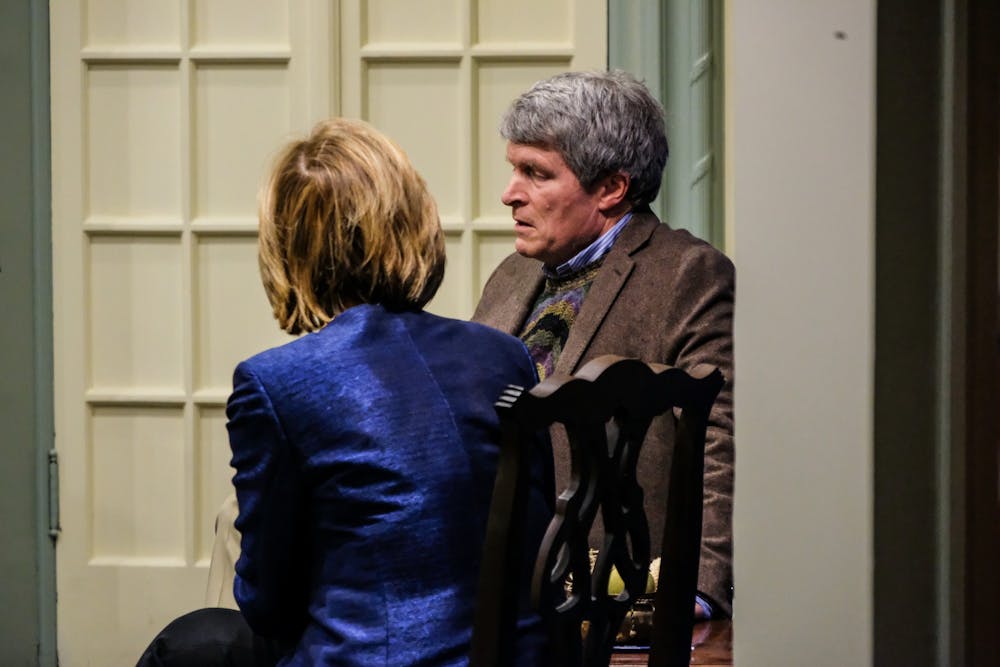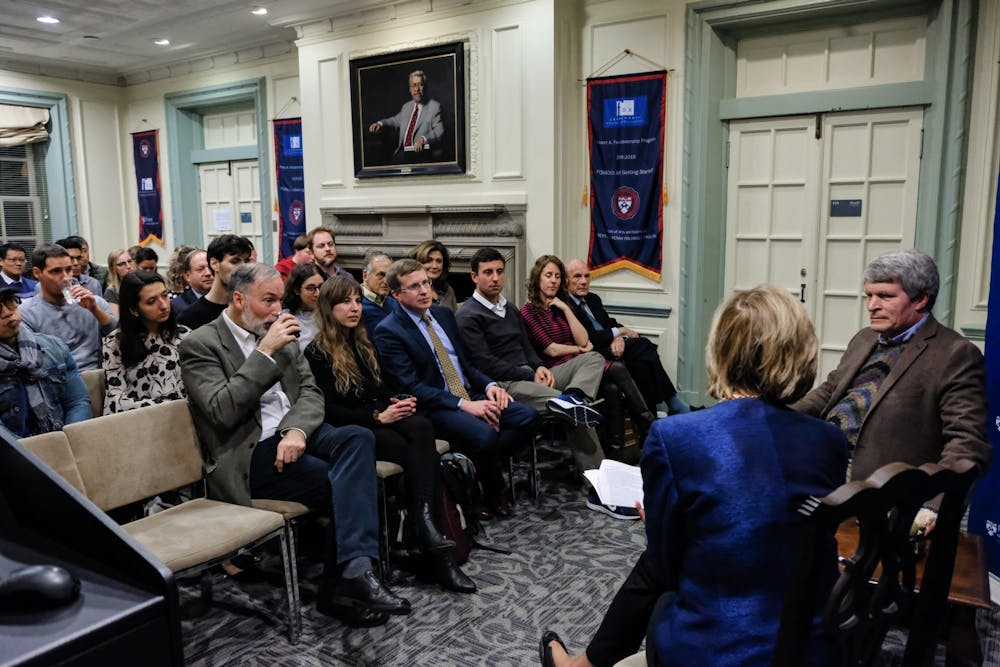
Richard Painter, who served as George W. Bush's chief ethics lawyer from 2005 to 2007, spoke as part of the Public Policy in Practice Series.
Credit: Amanda Jiacheng ShenFormer President George W. Bush's chief ethics lawyer Richard Painter warned of eroding ethical and political norms under 1968 Wharton graduate Donald Trump's presidency at Penn's Fels Institute of Government on Thursday.
Painter was invited to speak as part of the Fels Institute's Public Policy in Practice Series, led by Fels Distinguished Fellow Elizabeth Vale. Painter was born in Philadelphia and attended Yale Law School before becoming Bush's chief ethics lawyer from 2005 to 2007. He is now the S. Walter Richey Professor of Corporate Law at the University of Minnesota.
Painter has spoken out about what he believes to be unethical conduct by the Trump administration, including the appointment of 2004 Wharton graduate Ivanka Trump as an assistant to the president in 2017. Painter said he had seen former President Nixon as the “gold standard for unethical conduct,” but now believes “it’s a whole new world with Trump.”
In light of the recent impeachment trial and the Senate’s acquittal of the president, Painter discussed the difficulty of bringing criminal charges against a sitting president, tracing the legal origins of the president’s relationship with the law all the way back to the Founding Fathers' debate over impeachment.
“Unfortunately, I think that the decision to not make it clear in the Constitution that the president could be criminally charged like every other American, not just through impeachment, was a mistake,” he said.
Painter also discussed his career in the Bush White House. He said that a primary focus of his position as chief ethics lawyer was to ensure that there were no financial conflicts of interest among political appointees.
A Republican for most of his career, Painter said he has grown increasingly frustrated with the party throughout the Trump presidency. In 2018, he ran as a Democrat for the United States Senate seat in Minnesota, which was vacated by former Sen. Al Franken, who resigned after facing accusations of sexual misconduct. Painter lost the Democratic primary election, receiving 13.7% of the vote to current Sen. Tina Smith's 76%.

Painter discussed Trump's presidency and his career in the Bush White House at the Fels Institute of Government.
Students attending the event saw Painter’s outlook on politics as a model for how to avoid the drawbacks of hyper-partisanship.
“I think what’s really powerful about Painter is seeing that, even though people have different political views, they don’t have to be locked into political tribes,” Fels Institute Master of Public Administration student Brian Mechanick said. “If you come together on what matters ethics-wise, things will work out better for the country.”
“It was interesting hearing about how things like private equity investments are documented and regulated by the government,” College sophomore Luke Coleman said. “I believe there should be more of a discussion around how these conflicts affect appointments to political positions.”
Painter ended his discussion with advice to students looking to have a positive impact on the political process.
“It’s about caring about your country," he said. "Never, ever elect somebody that only cares about themselves, because that’s not what public service is about."
The Daily Pennsylvanian is an independent, student-run newspaper. Please consider making a donation to support the coverage that shapes the University. Your generosity ensures a future of strong journalism at Penn.
Donate



